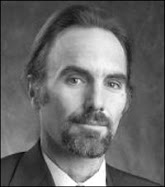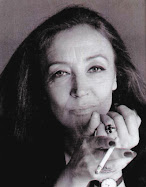 WikiLeaks: U.S. Officials Praise Cuba but fault Jamaica in Anti-Drug Operations
WikiLeaks: U.S. Officials Praise Cuba but fault Jamaica in Anti-Drug Operations By David Paulin
Cuba may be a tropical gulag and troublemaker in the hemisphere. But when it comes to the war on drug, the communist island is a reliable U.S. alley – with Cuban authorities even complaining to U.S. officials that neighboring Jamaica is failing to cooperate in drug-interdiction efforts.
That's according to a secret cable from the U.S. Special Interest Section in Havana dated August 11, 2009, and just released by WikiLeaks.
Cuba's state-controlled media follows a consistent narrative on the drug war: It's all America's fault because of its drug-hungry consumers. But in private conversations with U.S. officials, Cuban authorities are more likely to bad-mouth Jamaica -- not America. They express “significant frustration” over Jamaica's alleged failure to cooperate and share information to interdict drug-smuggling "go-fast" boats and aircraft originating from Jamaica and operating in or near Cuba, according to the diplomatic cable from Jonathan Farrar, Chief of Mission of the U.S. Interests Section in Havana.
Citing private conversations with at least 15 members of Cuba's interior ministry, the cable stated: “Cuban (Ministry of Interior officials) contend that narcotics smugglers from Jamaica are utilizing both Cuban airspace and waters to transport narcotics ultimately destined for the United States, but their repeated attempts to engage Jamaica on the issue have been ignored.”
Jamaica is a major transshipment point for Colombian cocaine and major producer of marijuana. Earlier this year, a State Department report on international drug trafficking said Jamaica's drug trade has compromised elected officials, the police, and legitimate businesses.
Jamaica, ironically, sees itself as a loyal ally of Cuba. Indeed, many Jamaican officials with an anti-American streak express admiration for Cuba's David-and-Goliath struggle against America. Yet the outwardly friendly relations between Cuba and Jamaica don't apply to the drug war – at least not according to top Cuban officials who privately deride Jamaica to their U.S. counterparts.
"Collectively and continually, (Cuban officials) express frustration over the (Jamaican government's) consistent ignoring of Cuban attempts to increase the flow of drug-related information between the two island nations to increase interdictions and avoid 'being surprised by drugs,'" the cable stated.
Cuba's failure to elicit more cooperation from Jamaica in the drug war isn't for lack of trying. In October, 2008, for instance, the U.K.'s Defense attache arranged an unusual meeting aboard a British Navy ship in the Port of Havana, bringing together Cuban and Jamaicans officials “to encourage greater dialogue, and to quash growing frustration between the two,” related the cable. Also attending was a U.S. Coast Guard specialist in anti-narcotics operations.
The meeting went badly. Cuban officials later complained to the U.S. Coast Guard specialist "that the two Jamaican officers 'just sat there and didn’t say anything,'" according to the cable. Cuba's interior ministry officials said “that Jamaican officials commonly agree to greater information sharing in person; however, that is the extent of their efforts.”
At one point, frustrated Cuban officials started translating communications being sent to Jamaica authorities into English “because in the past (Jamaican) officials stated to (Cuba officials) they did not understand Spanish. (Interior Ministry) officers report that despite their efforts, (Jamaican) officials still do not respond.”
The cable describes two cases of Cubans capturing drug smugglers from Jamaica.
On May 27, 2009, Cuban authorities interdicted a Jamaican go-fast boat carrying 700 kilograms of Jamaican marijuana -- an operation made possible by “real-time” information provided by the U.S. Coast Guard.
And on July 5, 2009, an aircraft from Jamaica dropped 13 bales of marijuana over a barren field in Cuba. Cuban officials determined the aircraft had been heading to a drop point in The Bahamas, but dropped its cargo prematurely in Cuba due to engine problems. The three crew members made an emergency landing in Cuba and were apprehended.
According to the cable, the U.S. Coast Guard's drug-interdiction specialist “gauges that (Cuba's government) genuinely desires greater information sharing on (anti-drug) issues with Jamaican authorities to serve the (Cuban government's) strategic interests.”
“Currently, Cuban officials appear resigned to the idea that they will not see greater (Government of Jamaica) cooperation in the near future.”
Earlier this year, Kingston, Jamaica, was plunged into violence when Jamaican authorities, after months of delays, moved to capture and extradite an alleged drug lord to the U.S. The efforts to capture Christopher “Dudus” Coke raised questions about the extent to which the alleged drug lord might be protected by government officials benefiting from Jamaica's drug trade.
Britain’s Guardian newspaper reported on the WikiLeaks cables on Tuesday, reviving claims in Jamaica that the ruling Jamaica Labor Party has been complacent with drug trafficking or is ignoring it.
The Obama administration's efforts to extradite Coke were the subject of two American Thinker articles, “Obama's Lesson in Realpolitik” and “Obama's Fruitless Quest to Extradite A Drug Thug.” (Originally published at The American Thinker blog)









